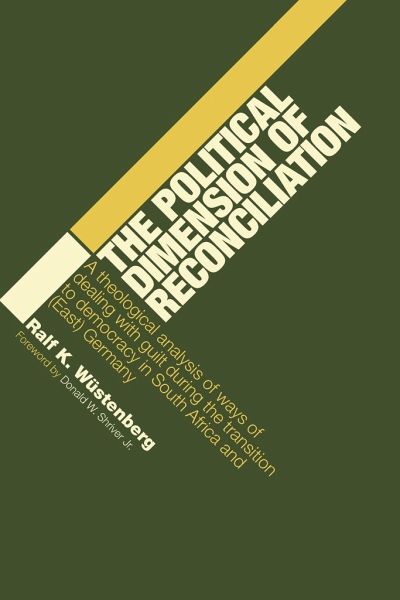
The Political Dimension of Reconciliation
A Theological Analysis of Ways of Dealing with Guilt during the Transition to Democracy in South Africa and (East) Germany
Versandkostenfrei!
Versandfertig in 1-2 Wochen
48,99 €
inkl. MwSt.

PAYBACK Punkte
24 °P sammeln!
When a nation is working through its past, the call for reconciliation is often expressed, as was the case in South Africa after the end of apartheid and in Germany after the fall of the Berlin Wall. Informed by Ralf Wüstenberg's long residence in South Africa and his own native Germany, this book investigates the conditions and dynamics associated with political reconciliation. Wüstenberg starts from the observation that reconciliation as a central theme in Christian theological teaching is spoken of in both theology and politics. But does it mean the same thing in both contexts? Is there a...
When a nation is working through its past, the call for reconciliation is often expressed, as was the case in South Africa after the end of apartheid and in Germany after the fall of the Berlin Wall. Informed by Ralf Wüstenberg's long residence in South Africa and his own native Germany, this book investigates the conditions and dynamics associated with political reconciliation. Wüstenberg starts from the observation that reconciliation as a central theme in Christian theological teaching is spoken of in both theology and politics. But does it mean the same thing in both contexts? Is there a commonality of meaning for words like guilt and reconciliation in politics and theology? Where and under what conditions is it possible to translate from theological language into political and vice versa? Wüstenberg's study promotes a genuine dialogue between religion and politics by carefully analyzing moral discourses in political transitions to democracy.




